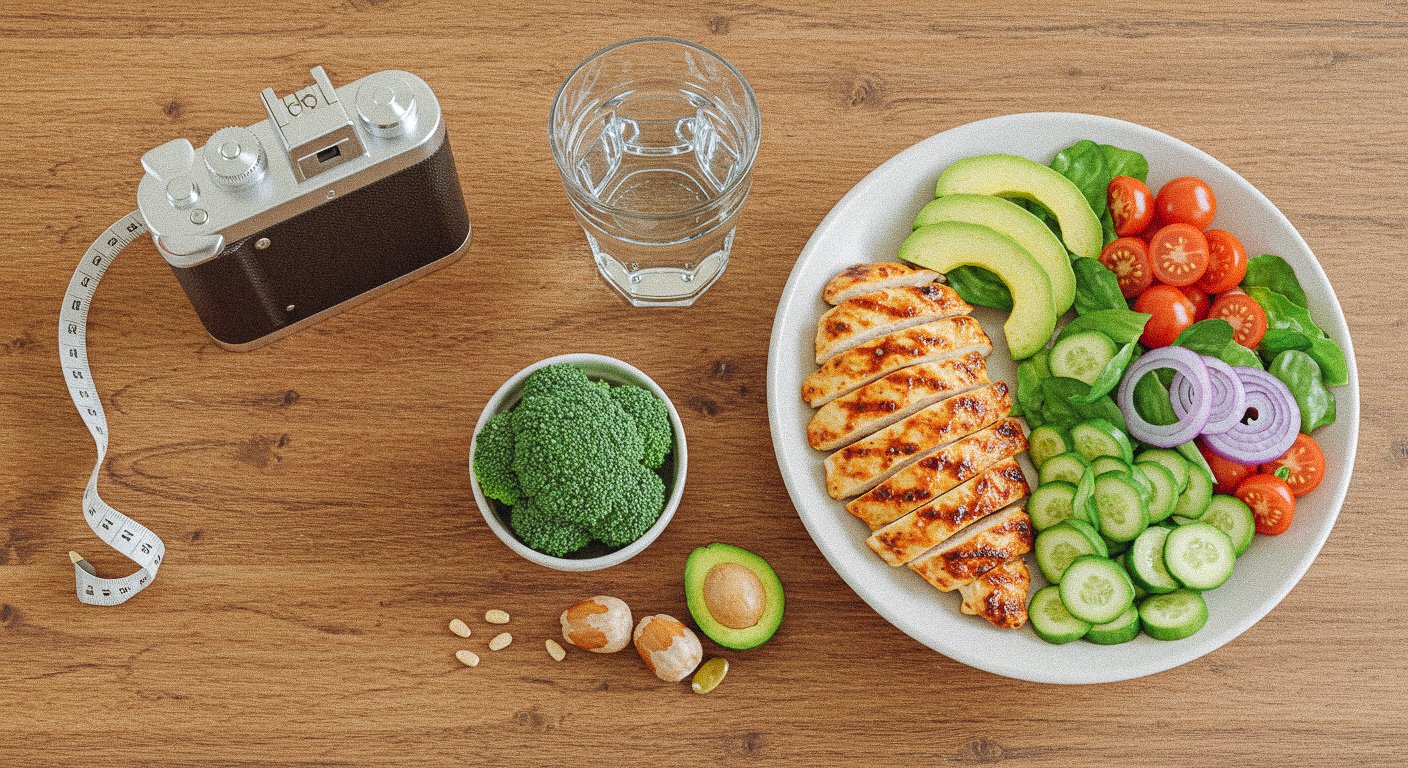Losing weight isn’t just about cutting calories—it’s about building sustainable eating habits that help you maintain a healthy weight long-term.
Crash diets often lead to yo-yo effects, making it harder to keep off the lost weight.
This guide covers scientifically-backed eating habits that can help you lose weight efficiently while staying healthy.
Let’s explore the best strategies to make your weight loss journey successful and sustainable!
1. Focus on Nutritional Balance, Not Just Calories

✔️ Simply cutting calories won’t lead to sustainable weight loss
Drastically reducing your calorie intake may lead to short-term weight loss, but it slows down metabolism and increases muscle loss, making it harder to maintain.
📌 Scientific Study:
- A Harvard Public Health study found that a diet rich in protein and healthy fats was more effective for long-term weight management.
- Groups following a low-carb diet lost an average of 4.4 kg (9.7 lbs) over a year, twice as much as those on a low-fat diet.
✔️ How to Build a Balanced Diet
✅ Protein: Chicken breast, eggs, tofu, salmon
✅ Healthy Carbs: Brown rice, oats, sweet potatoes
✅ Good Fats: Nuts, olive oil, avocado
✅ Fiber & Vitamins: Vegetables, fruits, seaweed
2. Increase Protein Intake to Maintain Metabolism

✔️ Protein helps preserve muscle mass and control appetite
Eating enough protein increases satiety hormones (leptin) while reducing hunger hormones (ghrelin), naturally decreasing calorie intake.
📌 Recommended Protein Intake
- General adult: 0.8–1.2g per kg of body weight
- Active individuals: 1.5–2g per kg of body weight
✅ Example (For 60kg / 132 lbs person)
✔️ Daily protein goal: 60–90g
✔️ Chicken breast 100g (23g) + 2 boiled eggs (12g) + ½ block of tofu (10g) + salmon 100g (20g)
3. Reduce Processed Foods and Focus on Whole Foods

✔️ Processed foods can sabotage weight loss efforts
- Ultra-processed foods (instant noodles, fast food, processed meats) disrupt appetite control and often lead to overeating and cravings.
- Studies show that people who consume processed foods regularly have a 32% higher risk of obesity.
📌 Tips for Eating More Whole Foods
✅ Replace refined carbs with whole grains (brown rice, oats, barley)
✅ Cook at home instead of eating fast food
✅ Choose water or herbal tea over sugary drinks
4. Light Dinner & No Late-Night Eating

✔️ Eating late at night increases fat storage
- When you eat right before bed, your metabolism slows down, and excess calories are more likely to be stored as fat.
- Research shows that people who eat before 7 PM lose 20% more weight compared to those who eat later at night.
📌 Healthy Dinner Guide
✅ Low-carb meals – Grilled chicken salad, tofu, salmon
✅ Protein & fiber-rich options – Vegetable soup, steamed greens
🚨 Things to Avoid:
- Caffeine, salty foods, and instant noodles before bed
- If you’re too hungry at night, drink warm milk or eat Greek yogurt
5. Drink More Water to Control Appetite

✔️ Proper hydration is crucial for weight loss
- Drinking a glass of water before meals can help you eat less and feel fuller.
- A study found that people who drank enough water lost 2kg (4.4 lbs) more over 12 weeks than those who didn’t.
📌 Hydration Tips for Weight Loss
✅ Drink 500ml of water first thing in the morning
✅ Have a glass of water 30 minutes before each meal
✅ Swap soda for lemon-infused water or herbal tea
Conclusion – Build Healthy Eating Habits for Lasting Weight Loss!
✔️ Prioritize nutrition over calorie restriction
✔️ Increase protein intake to boost metabolism
✔️ Eat whole foods instead of processed foods
✔️ Avoid late-night eating and opt for lighter dinners
✔️ Stay hydrated to regulate appetite and metabolism
📌 What’s your best diet habit for weight loss? Share your tips in the comments! 😊










